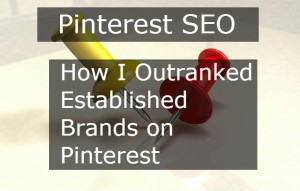When websites go viral (in terms of high viewership, not actual viruses), that’s a good thing. But one cannot assume that handling the sheer volume of an extreme spike won’t cause problems. Welcome to the risk of becoming so popular that no one can talk to you! When a bad person blocks a website by automating the same concept, it is called a dedicated denial-of-service attack. The difference, of course, is whether you are a victim of sabotage or your own lack of foresight. The last thing you want when business is good is to be doing no business at all, just because you never load tested your site.
On November 8, 2016, many Americans reacted to the thought of a President Trump by going to the Canadian Immigration and Citizenship website and crashing it due to volume, no doubt not bringing relief to those seeking sanctuary. Keeping with politics, on August 31, 2106, Donald Trump’s donation page became unreachable due to heavy volume, stating: “We’re experiencing an unusually high volume of traffic at the moment … It won’t be long so please check back soon.” In the 24 hours after the election, the fundraising page for the ACLU crashed but still registered a >7000% daily jump to $ 2.4 million from 38,626 contributions, according to ACLU spokesperson Gabriela Melendez. And the Obamacare website, both during its troubled initial launch and shortly before multiple signup deadlines, crashed due to heavy volume. Regardless of your political leaning, the problem for all of these is that websites should be able to handle heavier-than-usual loads, even if the day for a popularity spike is not highly predictable.
This phenomenon is not limited to American politics. On Nov. 14, 2014, shortly after announcing that the Pope Francis would be visiting the Phillippines and the official itinerary, www.papalvisit.ph was down for at least three hours after “high traffic” caused the server to crash. Similar high-traffic events affected the Macy’s website on Black Friday of 2016, Target’s website on Cyber Monday of 2015, Neiman Marcus on Black Friday and Saturday of 2015, and the Florida Lottery website on January 6-7, 2016. These dates are easier to predict as high-stress times. In New Zealand, an airbag recall notice that identified some 300,000 vehicles in New Zealand alone crashed the website (source).
In the real world, we have validated real-life stress tests situations including a university web-based portal after a PeopleSoft upgrade (how do you ensure the ability to enroll 8,000 students within 30 minutes?) and an e-learning provider who wants to ensure that performance does not drop with increased scalability. Failure to ensure that your website can withstand a friendly popularity spike is essential in today’s world. Popularity is what you want, and the ability to succeed when people want you is a goal that everyone should want for themselves. While Registration Day and Black Friday are predictable known days, news of the day can cause an extreme spike in activity. Do you really want to send your shoppers to a rival site on one of your busiest days?
Digital & Social Articles on Business 2 Community(30)
Report Post




